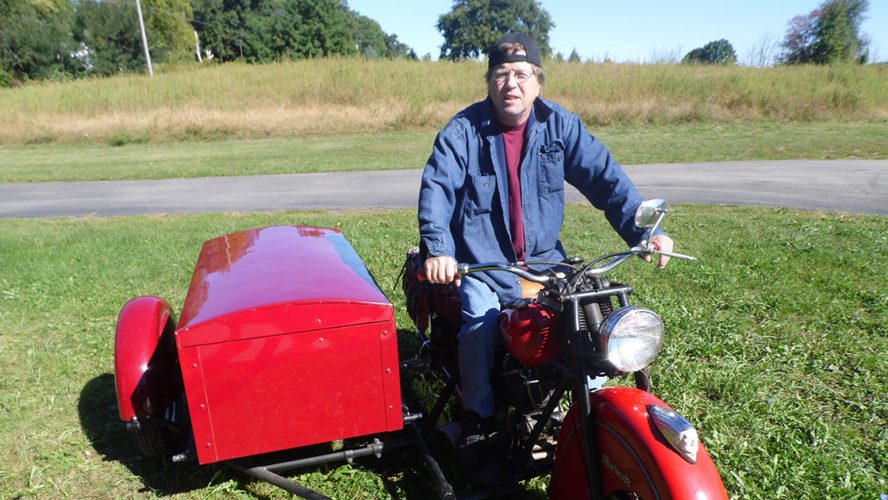Mike Roskowski occasionally had a fluttering in his heart but “being a guy,” he ignored it. He carried on running his cleaning business in Chelsea, Michigan, riding his motorcycle, hunting and fishing.
“I had heart butterflies every now and then but I never thought much of it,” said Roskowski, 62.
In 2011, Roskowski experienced a stroke that would put him in a coma for four months and have his family and doctors wondering if he’d ever recover. His stroke was attributed to atrial fibrillation — a type of irregular heartbeat that is caused when the two upper chambers of the heart beat unpredictably and sometimes rapidly.
“AFib is very hard to catch,” Roskowski said. “It surprised everybody that I had it, but having had a stroke and everything I’ve been through, I’m in pretty good health today.”
Keeping it under control
Roskowski had several surgeries following his stroke and today controls his AFib with medication.
“I know a lot more about AFib than I used to,” he said. “I’m pretty strong again.”
Roskowski is one of 2.7 million people in the U.S. who are diagnosed with AFib. AFib raises a person’s risk for stroke by 500 percent.
“Atrial fibrillation’s prevalence increases as you age, and by the time you get into your 80s, atrial fibrillation is equally as important as high blood pressure in terms of attribution for stroke, so it becomes really important as you become older to be checked for atrial fibrillation,” said Philip B. Gorelick, who is the executive medical director of Mercy Health Hauenstein Neurosciences and a professor of translational science and molecular medicine at Michigan State University College of Human Medicine in Grand Rapids.
Gorelick explains that when the heart fibrillates, clots can form in the heart’s atrium, break away and shoot into the brain’s circulation.
“Once clots get into the blood vessels they can block either larger vessels or sometimes smaller vessels downstream from the larger ones and you end up having an ischemic stroke,” Gorelick said. “The most feared complication of atrial fibrillation is having a stroke. These are often times severe strokes and one may end up being institutionalized for their care because of the severity of the stroke. In addition, these strokes are associated with higher mortality.”
Getting screened
Gorelick suggests people be screened for AFib by having their pulse checked periodically to check how steady their heart is beating. He also suggests an annual EKG.
“If you have a high index of suspicion of atrial fibrillation because the patient has palpitations, you may wish to obtain a cardiac event monitor which will give you a reading of the heart rhythm over a two- to four-week period,” he said. “Or, in some cases, you can put an insertable cardiac monitor under the skin that can monitor the heart for up to three years. The general rule of thumb for atrial fibrillation is that the more you look, the more likely you are to find it.”
Addressing the diagnosis
Gorelick said that once AFib is diagnosed, oral anticoagulation is the treatment of choice if the patient is a good candidate for such medication. Health care professionals use a stroke-risk calculation tool called the CHA2DS2-VASc score to determine who should be treated with anticoagulants.
The physician will prescribe warfarin or a NOAC (novel oral anticoagulant) drug, a newer class of four anticoagulants.
“NOAC drugs have advantages that once you take them, you quickly reach therapeutic levels of the drug,” Gorelick said. “And you don’t have to monitor with a blood test like you do with warfarin. You also don’t have to worry about certain food interactions.”
Starting the fight
The first step in combatting AFib is to have a conversation with your primary care physician, Gorelick advises.
“It’s really important to have your atrial fibrillation diagnosed because if we don’t know about it, we can’t prevent strokes,” he said.

